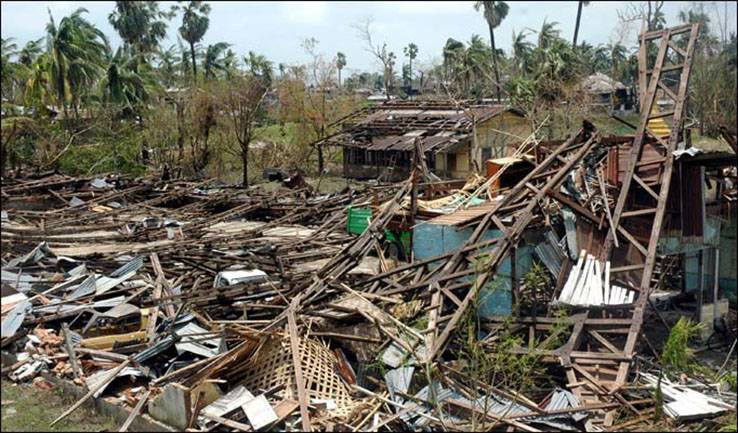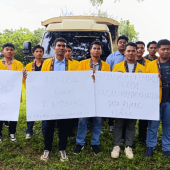Asia bears the brunt of most disasters, says Climate Change 2022 report

Asia is prone to most disasters, says the “Climate Change 2022” report.
Climate change caused by global warming leads to natural disasters and the spreading of infectious diseases.
Global warming causes climate change. As a consequence, natural disasters and the spreading of infectious diseases emerge.
The “Climate Change 2022” report warns that it will be elusive to limit global warming to 1.5 degrees Celsius without cutting emissions in all sectors immediately. The report warns that Asia will be affected severely due to climate change and high emission rates.
Asia is the most crowded continent and showed mostly the climate risk and natural calamities, especially man-made disasters.
According to another recent UN report, although the growth rate has slowed, the annual greenhouse gas emissions in 2010-2019 go to the highest level.
Climate change led to natural disasters:
According to the Global Assessment Report 2022 published by the UN Office for Disaster Risk Reduction-UNDRR, because of climate change and poor risk management, the number of disasters goes high very fast.
There will be 560 natural disasters in a year all over the world in 2030. Asia will be affected the most, the organization said.
The International Federation of the Red Cross and Red Crescent Societies estimated that due to climate-related disasters, more than 57 million people in Asia were affected in 2021.
Most Asian countries including the Philippines, Bangladesh, Myanmar, India, Indonesia, Pakistan, and Vietnam in the Asia-Pacific region are at risk of natural disasters and poverty, the organization said.
Climate change causes another consequence of spreading infectious diseases:
Daniel R Brooks, a biologist at the University of Nebraska State Museum and co-author of the book “The Stockholm Paradigm: Climate Change and Emerging Disease,” said the study shows the risk of infectious diseases connected with climate change.
“This particular contribution is an extremely conservative estimate for potential” emerging infectious disease spread caused by climate change, said Brooks.
Jaron Browne, organizing director of the climate justice group Grassroots Global Justice Alliance, said the study shows that African and Asian countries are experiencing climate injustices.
“African and Asian nations face the greatest threat of increased virus exposure, once again illustrating how those on the frontlines of the crisis have very often done the least to create climate change,” Browne said.
Study co-author Gregory Albery, a disease ecologist at Georgetown University, said that the world should learn and prepare for the emergence of infectious diseases caused by climate. “It is not preventable, even in the best case climate change scenarios,” Albery said.
Carlson, who was the author of the latest report from the Intergovernmental Panel on Climate Change, said that in order to lessen the spreading of infectious diseases, greenhouse gas must be cut and discontinued the use of fossil fuels. - With inputs by Patrick Soe Htun
Radio Veritas Asia (RVA), a media platform of the Catholic Church, aims to share Christ. RVA started in 1969 as a continental Catholic radio station to serve Asian countries in their respective local language, thus earning the tag “the Voice of Asian Christianity.” Responding to the emerging context, RVA embraced media platforms to connect with the global Asian audience via its 21 language websites and various social media platforms.














